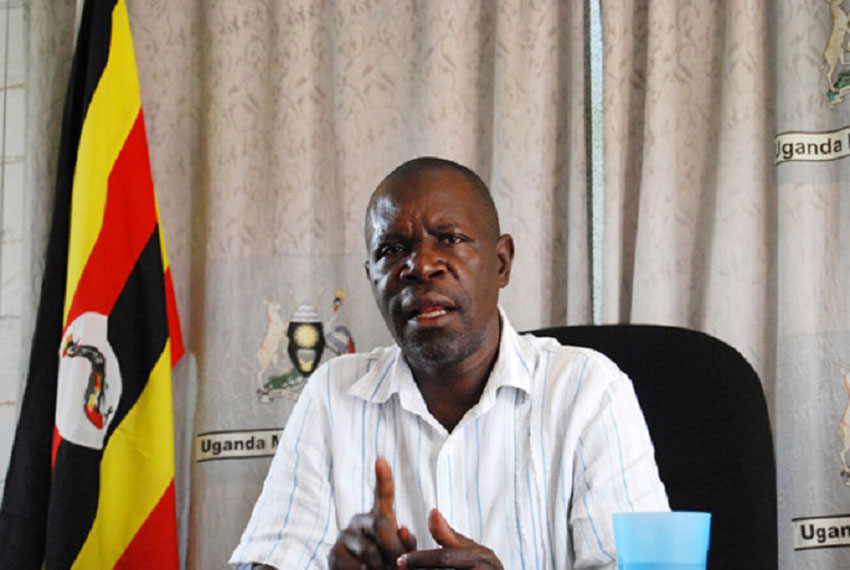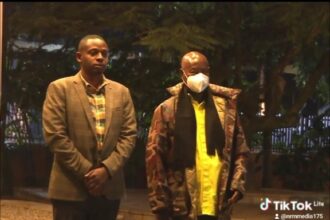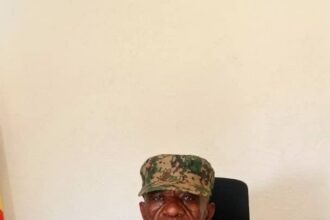The arrest of the four comedians called Bizonto (the deranged) and Gerald Kiwewa, an artiste, has made us to rethink about the extent to which the fundamental rights to freedom of speech and expression are respected, promoted and protected in Uganda. The victims, who are now being referred to by many as political prisoners, are paying the price for using their talents on various social media platforms to condemn and expose the wrongs in Uganda. They have reportedly been charged with sectarianism and offensive communication, respectively.
This is not the first time individuals have been arrested for criticising the government and public figures. About two years ago, Mr David Mugema, a musician, and his producer, Mr Jonah Muwanguzi, were arrested and charged for composing a song that the authorities said disturbed the peace of President Museveni. The song merely called for the President’s peaceful retirement. Also Dr Stella Nyanzi, then an academic and activist now turned politician, was charged and sentenced for alleged offences against the President. Ugandans have been left wondering whether these arrests are justified, with many raising concerns on the selective application of the law, especially against those perceived to be opposed to the government and human rights activists.
Legal provisions
The Ugandan Constitution provides for the right to freedom of expression and speech under article 29. The same rights are further protected in article 19 of the International Covenant on Civil and Political Rights (ICCPR), which provides for the right of individuals to hold opinions without interference and the right to freedom of expression which includes freedom to seek, receive and impart information and ideas of all kinds.
At a regional level, article 9 of the African Charter on Human and People’s Rights (African Charter) protects the right to freedom of expression. It is important to note that Uganda ratified both the ICCPR and the African Charter, hence it is duty-bound to respect, promote and protect the rights enshrined in these two instruments, in this instance the fundamental freedoms of free speech and expression.
Limitations of the rights
It is also important to observe that these rights are not absolute as they are subject to limitations. Article 19(3) of the ICCPR states that the right to freedom of expression is subject to certain restrictions, which should be provided by law, and are necessary for the respect of the rights or reputation of others or for the protection of national security or of public order or of public or health or morals.
Whilst noting that the rights to freedom of expression and speech can be justifiably limited, it should not be ignored that courts adopt a three pronged approach in justifying whether the right can be justifiably limited. The limitation should be provided for by law, be for a legitimate purpose and be necessary to achieve the prescribed purpose. As such, although the government may argue that the arrest of the Bizonto is justified, I do not share the same sentiments. Their arrests do not meet the criteria mentioned above.
Provided for by law
This entails that the limitation on these rights should be prescribed by law. This further requires the law to be drafted with accuracy and precision. The Constitution of Uganda provides for these rights without any limitation. Whereas section 41 of the Penal Code Act, and sections 21 and 25 of the Computer Misuse Act of 2011 under which they were charged are clear in this aspect, it is still not clear as to how the comedians committed the alleged offenses. All they did was to mirror a reality of what is happening in Uganda. Positive criticism of government officials and exposing corruption does not amount to sectarianism or offensive communication.
To serve a legitimate purpose
The only legitimate grounds for limiting rights and freedoms are stipulated in article 27(2) of the African Charter. It states: “The right must be exercised in respect of other people’s rights, collective security, morality and common interest.” Charging the Bizonto with sectarianism because they have criticised the government and exposed corruption does not serve a legitimate purpose. Ugandans should be free to criticise their government actions and any attempts to thwart such criticism is unconstitutional. Speaking out against the government wrongdoing in my view is the quintessential freedom in a democratic state we always say we are. These arrests do not serve a legitimate purpose.
Necessary to achieve the prescribed purpose
The prerequisite of necessity entails a component of proportionality, in that the scope of the limitation imposed on the enjoyment to freedom of expression and speech should be proportional to the value which the limitation serves to safeguard. The use of criminal sanctions to limit these rights is not necessary in a democratic Uganda. This is cemented by Principle 35 of the African Commission Declaration of Principles on Freedom of Expression and Access to Information in Africa, which provides that “no person shall be subject to civil, criminal, administrative…or other sanctions or harm, for releasing information on wrongdoing or which discloses a serious threat to health, safety or the environment, or whose disclosure is in the public interest, in the honest belief that such information is substantially true.” As such, the arrests are not necessary in a democratic Uganda.
Way forward
In light of this, it is my view that the government of Uganda has and continues to violate the rights to freedom of expression and speech as enshrined in the Constitution, the ICCPR and the African Charter, which are fundamental freedoms in any democratic society. The country’s record of freedom of expression is still wanting on global rankings. In the Global Press Freedom Index by Reporters without Borders, Uganda was ranked 125th in 2020, the same position in 2019 and a drop from the 117th position in 2018, out of 180 countries assessed.
Respect, protection and fulfillment of these rights is therefore essential and indispensable for the free development of the human person, the creation and nurturing of democratic Uganda and for enabling the exercise of other rights. The Ugandan government should respect these individuals’ fundamental rights by unconditionally releasing them and create an enabling environment for the exercise of the same rights. Using the criminal justice system to cripple talent and critiques of the government is disastrous. The state should take effective steps to address whatever wrong has been pointed out for a better future rather than pretending that all is well as the country sits on a time bomb.
The author is a Ugandan journalist based in South Africa.
Email: johnsonmayamba@gmail.com
Do you have a story in your community or an opinion to share with us: Email us at Submit an Article









